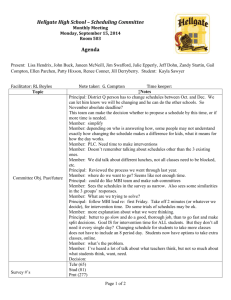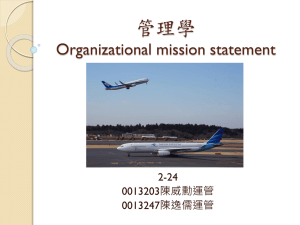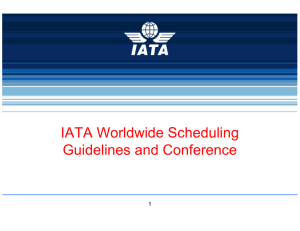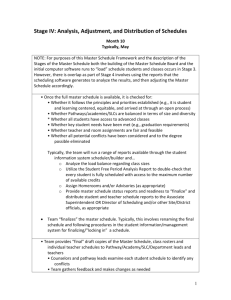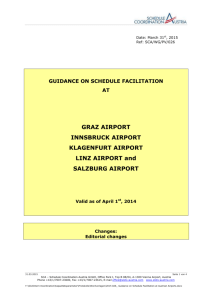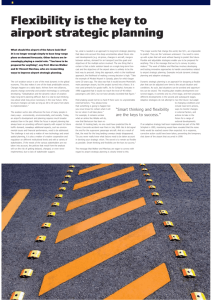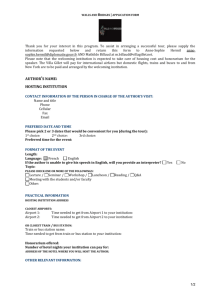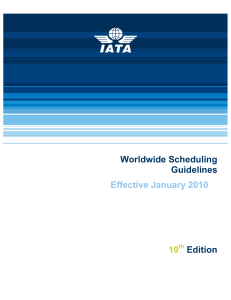GUIDELINES ON THE FACILITATION OF SCHEDULES AT
advertisement
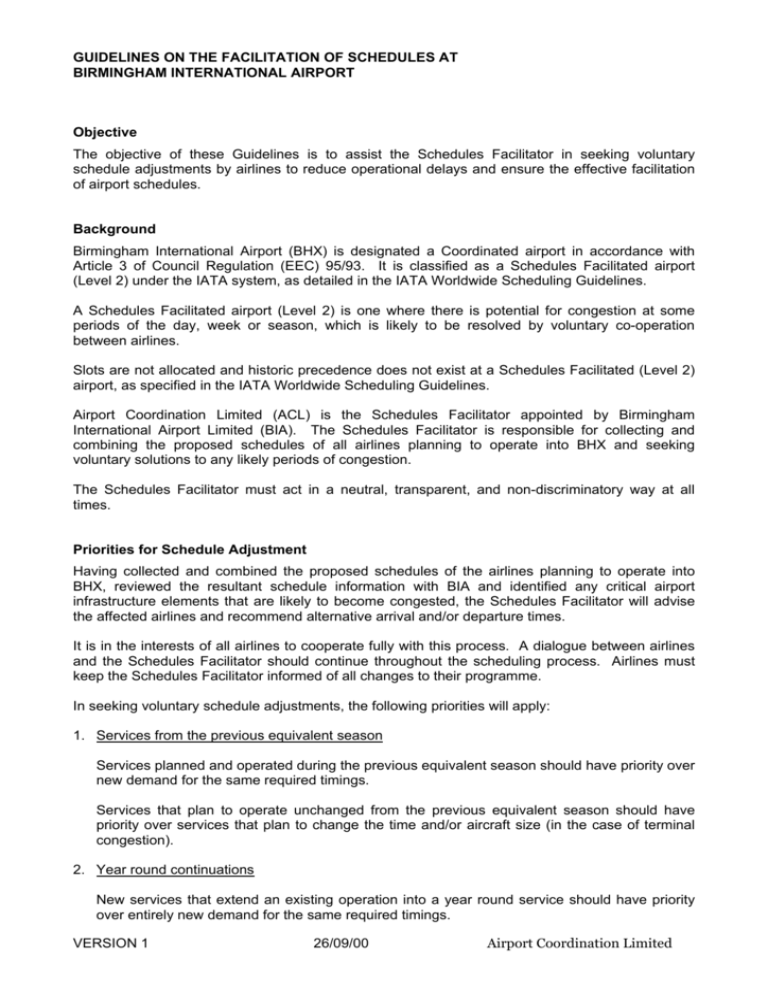
GUIDELINES ON THE FACILITATION OF SCHEDULES AT BIRMINGHAM INTERNATIONAL AIRPORT Objective The objective of these Guidelines is to assist the Schedules Facilitator in seeking voluntary schedule adjustments by airlines to reduce operational delays and ensure the effective facilitation of airport schedules. Background Birmingham International Airport (BHX) is designated a Coordinated airport in accordance with Article 3 of Council Regulation (EEC) 95/93. It is classified as a Schedules Facilitated airport (Level 2) under the IATA system, as detailed in the IATA Worldwide Scheduling Guidelines. A Schedules Facilitated airport (Level 2) is one where there is potential for congestion at some periods of the day, week or season, which is likely to be resolved by voluntary co-operation between airlines. Slots are not allocated and historic precedence does not exist at a Schedules Facilitated (Level 2) airport, as specified in the IATA Worldwide Scheduling Guidelines. Airport Coordination Limited (ACL) is the Schedules Facilitator appointed by Birmingham International Airport Limited (BIA). The Schedules Facilitator is responsible for collecting and combining the proposed schedules of all airlines planning to operate into BHX and seeking voluntary solutions to any likely periods of congestion. The Schedules Facilitator must act in a neutral, transparent, and non-discriminatory way at all times. Priorities for Schedule Adjustment Having collected and combined the proposed schedules of the airlines planning to operate into BHX, reviewed the resultant schedule information with BIA and identified any critical airport infrastructure elements that are likely to become congested, the Schedules Facilitator will advise the affected airlines and recommend alternative arrival and/or departure times. It is in the interests of all airlines to cooperate fully with this process. A dialogue between airlines and the Schedules Facilitator should continue throughout the scheduling process. Airlines must keep the Schedules Facilitator informed of all changes to their programme. In seeking voluntary schedule adjustments, the following priorities will apply: 1. Services from the previous equivalent season Services planned and operated during the previous equivalent season should have priority over new demand for the same required timings. Services that plan to operate unchanged from the previous equivalent season should have priority over services that plan to change the time and/or aircraft size (in the case of terminal congestion). 2. Year round continuations New services that extend an existing operation into a year round service should have priority over entirely new demand for the same required timings. VERSION 1 26/09/00 Airport Coordination Limited 3. Effective period of operation Where two or more airlines could potentially resolve a period of congestion through voluntary schedule adjustment, the schedule effective for the longer period of operation should have priority for the required timings. 4. Ad hoc services Airlines intending to operate a series of flights should have priority over those intending to operate on an ad hoc basis. 5. Operational factors Services affected by a curfew period at another airport or are constrained by other relevant operational factors should have priority over other similar demand for the required timings. Resolution of Issues If airlines are unable and/or unwilling to accept the proposed voluntary moves, the Facilitator will refer the matter to BIA to consider scope for flexibility. An option available to BIA is to agree flexibility on an ad hoc basis, in which case the service would not benefit from Priority 1 in the next equivalent season. If a satisfactory resolution cannot be found, the airline, BIA, or the Facilitator may refer the matter to the Scheduling Committee for consideration. If it is the decision of the Scheduling Committee that a schedule adjustment is necessary but the airline does not comply, the airline’s failure to cooperate will be recorded by the Facilitator. Airlines that have not cooperated in relation to schedule adjustments may not receive historic precedence for the operated timings should BHX need to be designated as Fully Coordinated (Level 3) in accordance with paragraph 4.6 of the IATA Worldwide Scheduling Guidelines. VERSION 1 26/09/00 Airport Coordination Limited
